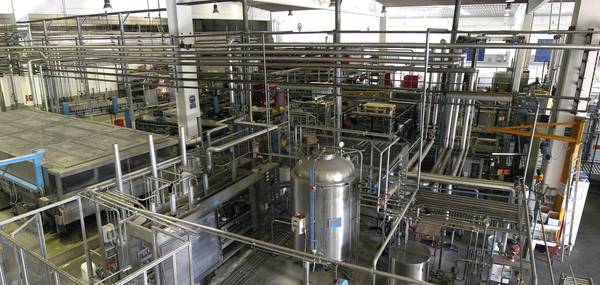Economy: EBRD, growth remains strong in CEE, Western Balkans
But risks from trade tensions, geopolitical instability
02 November, 22:18(ANSA) - BELGRADE - The European Bank for Reconstruction and Development (EBRD) said in its latest Regional Economic Prospects report that the economic growth in Central and Eastern Europe, the Baltic states and in the Balkans will remain strong in 2018 and 2019.
However, "risks persist from global trade tensions, high corporate debt levels and continued geopolitical instability," the EBRD noted.
According to the EBRD report, growth in Central Europe and the Baltic states will average 4.3% in 2018 and 3.5% in 2019, from 4.4% in 2017 and 3.5% in 2016. EBRD forecasted the growth in Croatia being 2.7% in 2018 and 2.5% in 2019; 3.6% in 2018 and 3% in 2019 in Estonia; 4.3% in 2018 and 3.3% in 2019 in Hungary; 3.9% in 2018 and 3.5% in 2019 in Latvia; 3.4% in 2018 and 2.8% in 2019 in Lithuania; 4.7% in 2018 and 3.6% in 2019 in Poland; 3.9% in 2018 and 4.0% in 2019 in Slovakia and 4.2% in 2018 and 3.3% in 2019 in Slovenia.
Growth in South-eastern Europe and in the Western Balkans will average 3.5% in 2018 and 3.2% in 2019, from 4.4% in 2017 and 3.1% in 2016. EBRD forecasted the growth in Albania at 4% in 2018 and 3.9% in 2019; 3.0% in 2018 and 3.5% in 2019 in Bosnia and Herzegovina; 3.6% in 2018 and 3.4% in Bulgaria; 2.0% in 2018 and 3.0% in 2019 in Macedonia; 2.2% in 2018 and 2.3% in 2019 in Greece; 4% in 2018 and 2019 in Kosovo; 4.2% in 2018 and 3.0% in 2019 in Montenegro; 4.2% in 2018 and 3.6% in 2019 in Romania and 4.2% in 2018 and 3.5% in 2019 in Serbia.
EBRD noted that "the outlook is broadly stable in the economies" in the region, with the exception of Turkey (GDP growth 3.6% in 2018, 1.0% in 2019), "wound back sharply on the back of a depreciation of the lira, which weighed on investor confidence, and higher interest rates." The report highlighted also risks for emerging economies related to the "escalation of protectionism", particularly negative for export-oriented economies like Slovakia and Hungary, "in light of trade tensions between the United States of America and its major trading partners." Moreover, "the security situation in the Middle East and geopolitical tensions also remained a key source of risk" for the economies in the region, together with the possible "disruption to cross-border supply chains in the case of a no-deal Brexit," the EBRD said.
EBRD noted also that "growth in central and south-eastern Europe is projected to gradually moderate in 2018-19 from high levels seen in 2017, reflecting shortages of skilled labour". South-eastern European region is showing however a robust growth," with Macedonia and Serbia "growing at its strongest rate for several years." Macedonia, the only country that did not record any growth in 2017, is showing signs of a modest recovery, EBRD said, adding that "neighbouring Serbia is showing its strongest growth rate for some years while other economies in the Western Balkans are also expanding at a healthy rate." (ANSA).














